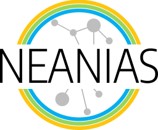2020 has been a genuinely unusual year, but the NEANIAS Space team never lost its focus. We have been working really hard to walk the first steps towards the materialization of our foreseen collaborative research ecosystem in EOSC. We have had to face a fair number of technological and scientific challenges in the process, which often required out-of-the-box solutions to be overcome. It has been a fantastic experience that made us all give our best, a very enriching road that culminated with the first release of NEANIAS space services.
1st Space Services release: Where we are
In December 2020, NEANIAS Space Services achieved “first light”. Despite being only a mere appetizer of what is to come, these services provide the Space Research community with innovative, tailored tools to push forward knowledge barriers in a data-intensive era. The first release includes:
- The SPACE-VIS services, integrating operational solutions for astrophysics and planetary data access, management and visualization and fostering Open Science practices by enforcing the FAIR principles: findability, accessibility, interoperability and reusability. These services include ViaLactea Visual Analytics, ViaLactea Knowledge Database, Astro Data Navigator (ADN) and Advanced Geospatial Data Management platform (ADAM).
- The SPACE-MOS services, built upon widely adopted solutions such as Montage, which provides workflows and pipelines for mosaic generation, either from large sky patches or planetary surface data.
- The SPACE-ML services, making the most of cutting-edge machine learning techniques to offer the space research community powerful solutions to extract, characterize and classify astronomical objects in next all-sky survey data.
But not only did we craft these services: the NEANIAS Space team has been involved in many dissemination activities throughout the year, presenting the project and advocating for Open Science in some of the main scientific and technological venues, such as the European Astronomical Society Meeting, the Astronomical Data Analysis Software and Systems Conference and the Conference on Software and Cyberinfrastructure for Astronomy. Our participation in these events got the community involved in the project, providing valuable feedback and allowing for better-tailored services.
NEANIAS Space in 2021. Where we want to go
But at NEANIAS Space we don’t stop moving, pretty much like stars and planets. This first service release, the icing on the cake of a harsh year, is only the beginning of our journey. Let us remember our project goals:
- Foster knowledge generation from raw data, providing specific tools to aid researchers in their workflows
- Lead breakthrough discoveries in space science, setting solid foundations for the efficient exploitation of large datasets from next-generation telescopes and instruments
- Create a traversal, fully collaborative European research community built on top of Open Science pillars.
To succeed in these ambitious goals, we need to keep working in the same direction, polishing our services, releasing new features and enhanced functionalities, and ensuring scalability. Of course, all this has to be done with Open Science in mind, and in continuous communication with our end-user communities. For that reason, our roadmap for this 2021 year foresees some key points:
- An Open Call for innovation, targeting companies and research groups interested in exploiting NEANIAS services to produce new business opportunities and research outcomes.
- A mid- term release on May 2021 to showcase our services and present our mid-term results to the European Commission during the official NEANIAS 1st
- A second release on December 2021 that is expected to integrate Open Science tools in line with the EOSC platform requirements.
If you want to be updated about NEANIAS space news and our most recent developments and achievements, follow our social channels. Stay tuned!
